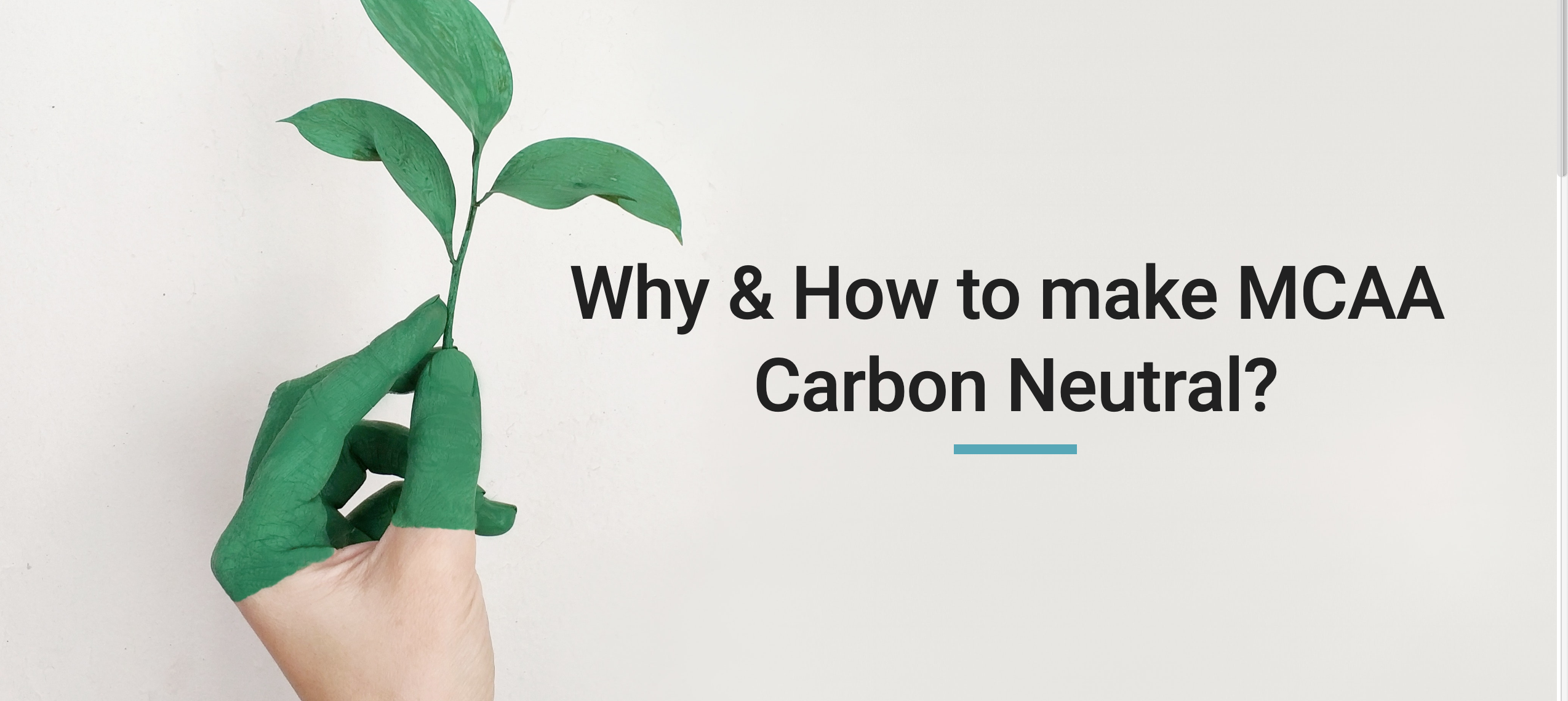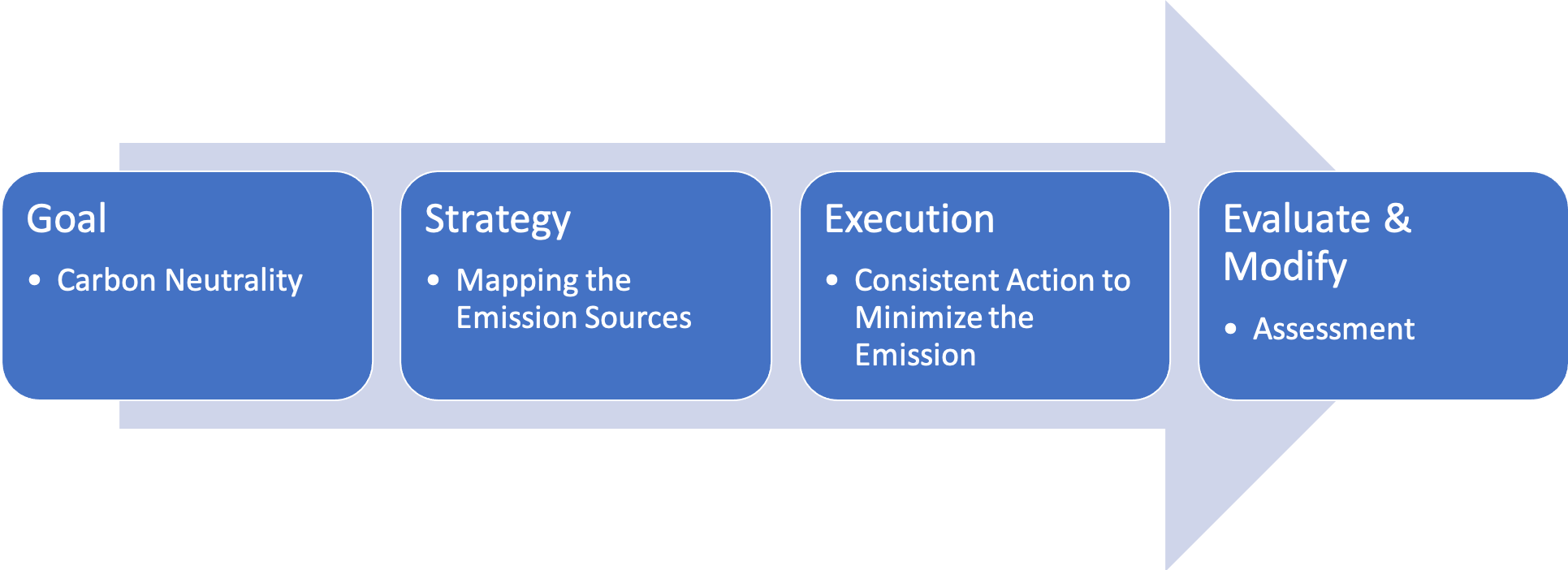 Francesco Sanna
Francesco Sanna
 Praveen Kumar
Praveen Kumar
 Praveen Kumar
Praveen Kumar
 Praveen Kumar
Praveen Kumar
Why & How to make MCAA Carbon Neutral?

Why should we do this?
Based on the "European Green Deal," the EU has decided to be climate-neutral by 2050 – an economy with net-zero greenhouse gas emissions*. The shift to a climate-neutral society is both a significant challenge and an opportunity to create a better future for all.
Carbon-neutral or carbon neutrality is the action of every individual or organization to balance the carbon emission. We all have a pledge to do whatever it takes to keep the planet sustainable for many years and generations to come. Notably, MCAA, as a non-profit organization that is funded and supported by the European Commission (Directorate-General for Education and Culture), is not excluded from this aim.
As a non-profit organization, you might think it is an expensive and non-realistic goal. However, there are already many independent non-profit organizations that are working to accelerate the transition to a low-carbon world. Taking specific, measurable, attainable, relevant, and time-bound (SMART) actions have shown science-based opposite results**.
How should we do this?
There are several steps that MCAA can adapt to achieve this goal. I will try to summarize these action plans (figure below) as follows:
First and foremost, the MCAA should map its carbon footprints through defining sustainable practices. Emission sources could include internet servers and online services, MCAA events, and organizational partners.

After creating the strategy, MCAA should execute plans and take consistent actions. For instance, MCAA should take measures to organize its events with climate-neutral organizations or at least carbon offsetting partners and companies. MCAA also needs to demand that our service contractors who undertake a range of actions to assist in the creation, development, and running of the association***, are socially responsible cooperates. Additionally, MCAA should reduce business travel emissions and try to fundraise supporting carbon offset projects to neutralize travel carbon emissions. Needless to say, we need to organize training for the members to increase carbon offset awareness and to become a carbon-neutral community.
Finally, MCAA should monitor and evaluate its action plan on a systematic basis to assess the performance and modify the strategy if necessary.
I think this holistic approach aligns with our mission. As a European non-profit organization, let's hold ourselves accountable for the choices we make that affect others.
What do you think? Feel free to comment your thoughts or opinions. I'm looking forward to hearing from you.
Mohammad Rezaei
Chair of Austrian Chapter
References: *2050 long-term strategy - Climate Action - European Commission. (2016). Retrieved 9 March 2020, from https://ec.europa.eu/clima/policies/strategies/2050_en **Robinson, O., Tewkesbury, A., Kemp, S., & Williams, I. (2018). Towards a universal carbon footprint standard: A case study of carbon management at universities. Journal Of Cleaner Production, 172, 4435-4455. doi: 10.1016/j.jclepro.2017.02.147 ***Marie Curie Alumni Association. (2020). Retrieved 9 March 2020, from https://www.mariecuriealumni.eu/about-us
0 Comments